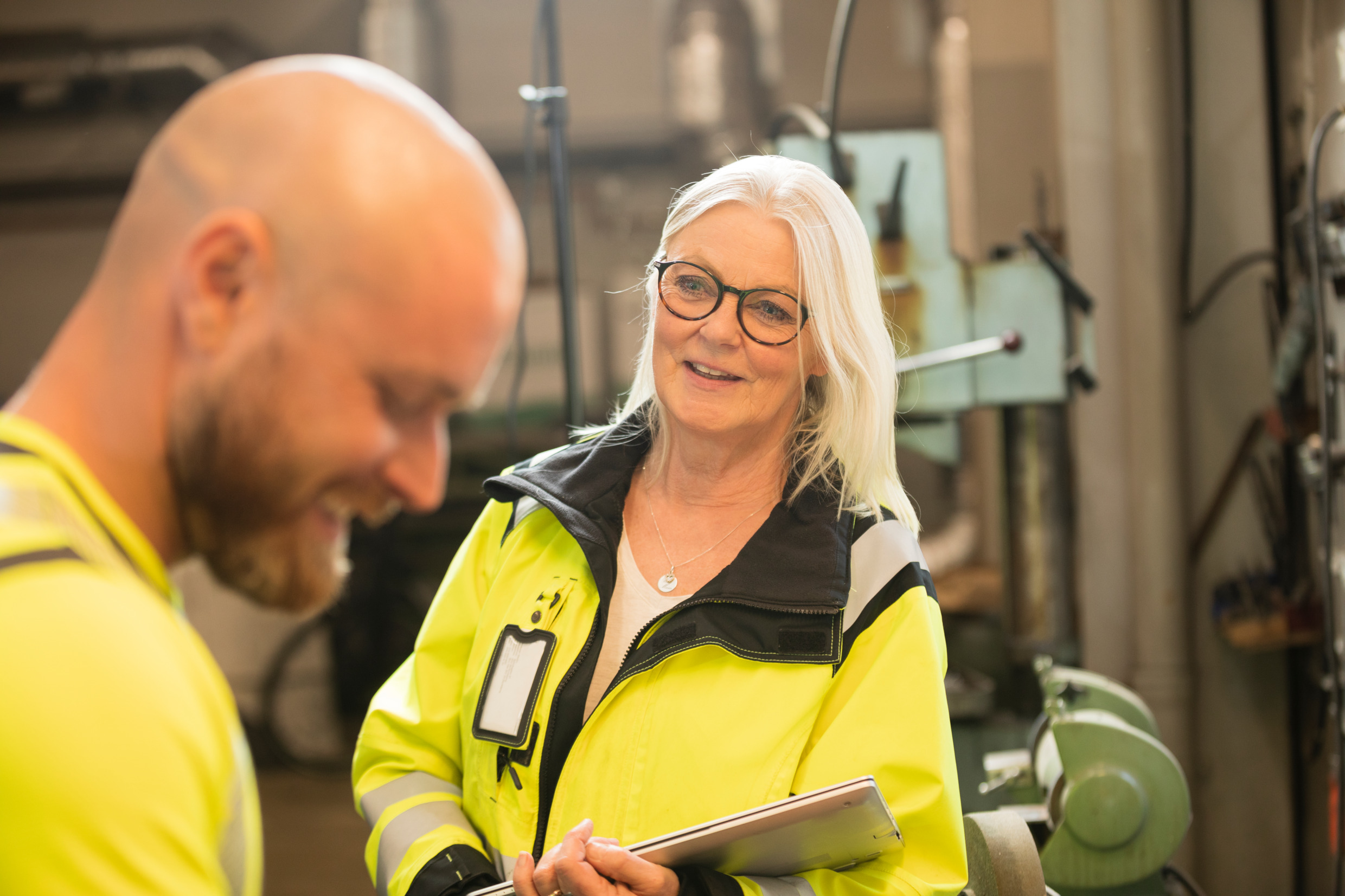Rooted and resilient; how family businesses endure and evolve

Every year, for the last 50 years, Elmia Subcontractor gathers companies from the manufacturing industry for a few buzzing fair days at Elmia, Jönköping. A great deal of the participating organisations are family businesses or originated as such.
At the Centre for Family Entrepreneurship and Ownership (CEFEO) at Jönköping International Business School, researchers Kajsa Haag and Massimo Baù are exploring what makes these sorts of businesses thrive—not just over years, but across generations.
Deep roots in the community
When managing a family business it’s not just about strategy—it’s personal. Owners often live in the same communities as their employees. They know them and see them. And in difficult times, they feel a moral responsibility to protect them and tend to make decisions with a longer perspective in mind.
– Family firms tend to think in generations, not quarters, says Massimo. That long-term perspective gives them a kind of patience and stability you rarely see in other ownership models.
Nowhere is the loyalty of family businesses more visible than in their connection to local communities – especially in regions like Småland.
– These owners don’t just run companies, Kajsa explains. They live in the same towns, attend the same events, and support local schools and sports clubs. They’re part of the community—and that creates a level of accountability you don’t see in remote ownership. Our research shows that, because of the local connection, family businesses are far less likely to lay off workers during crises. That loyalty to their employees and community is deeply rooted.
Massimo explains this as a form of social capital—an invisible, but powerful network of trust that enhances business resilience and reputation.
– It’s a paradox, says Massimo. They suffer more in the short term because they protect their people. But in the long term, they build loyalty, trust, and a stronger foundation.
The power of patient capital
Unlike businesses tied to external investors or venture capital, family firms often operate with patient capital; they’re willing to invest in the long-term.
– If the family believes in a vision, they can act decisively, says Kajsa. They don’t need to wait for external approval. That’s a powerful advantage in industries like manufacturing, where returns may take years.
But that same structure can also pose challenges. If the current generation resists change, the company can stagnate. This makes open communication between generations essential – a recurring theme in CEFEO’s work.
Family businesses may not always be first to market, but when they innovate, they often do so with deep purpose.
– Many specialize in niche areas, becoming world leaders in very specific fields, Massimo explains. That focus—and the ability to retain skilled employees for decades—is a huge advantage.
At the same time, maintaining that edge requires an ecosystem that supports continuous learning—from schools and universities to regional fairs and international partnerships.
Succession as a source of strength
One of the defining features of family businesses is their ability, and challenge, to pass the company down to the next generation. Handled well, succession becomes a major source of resilience for the company. It preserves not just financial capital, but also values, knowledge, and institutional memory.
– Succession is about more than just choosing a new CEO, Kajsa says. It’s about building ownership competence, emotional intelligence, and ensuring the next generation is both willing and able to lead.”
Massimo refers to this process as transgenerational entrepreneurship—a concept that recognizes how families pass down not just roles, but a mindset of innovation, responsibility, and stewardship.
Modesty, values, and the Swedish context
Sweden’s business culture, especially in regions like Småland, adds another layer to this story.
– Family firms here often operate with quiet confidence, Kajsa says. Even the most successful business owners live modestly. They reinvest in their companies, stay grounded, and avoid unnecessary risk.
So, what makes family businesses truly resilient? Kajsa and Massimo sums it up:
– They grow with purpose. They invest in people. They think in decades.
And in a world where speed often outpaces meaning, family firms offer something different – a business model built not just for profit, but for continuity, care, and community.
About CEFEO:
CEFEO is a world-leading, interdisciplinary research centre focused on family business and ownership. It combines rigorous, high-quality research with relevant education and collaborates with industry and international networks to contribute both academically and practically. This year, they celebrate 20 years - learn more about them on their website.
Massimo Baù is a Senior Associate Professor in Family Business and Ownership at JIBS and the Director of CeFEO. He serves as Research Director and Board Member of IFERA, is a Fellow of the Family Firms Institute (FFI), co-founded the European Family Business Centres Network (EuFBC), and contributes on advisory boards for sustainable governance initiatives
Kajsa Haag is an Associate Professor and Associate Dean of Faculty at Jönköping International Business School (JIBS). She is a key member of CEFEO and specializes in family business succession, ownership dynamics, enterprise foundations, strategy-as-practice, and legal regulation of ownership.
Photo: imagebanksweden_phia_bergdahl/Jönköping University